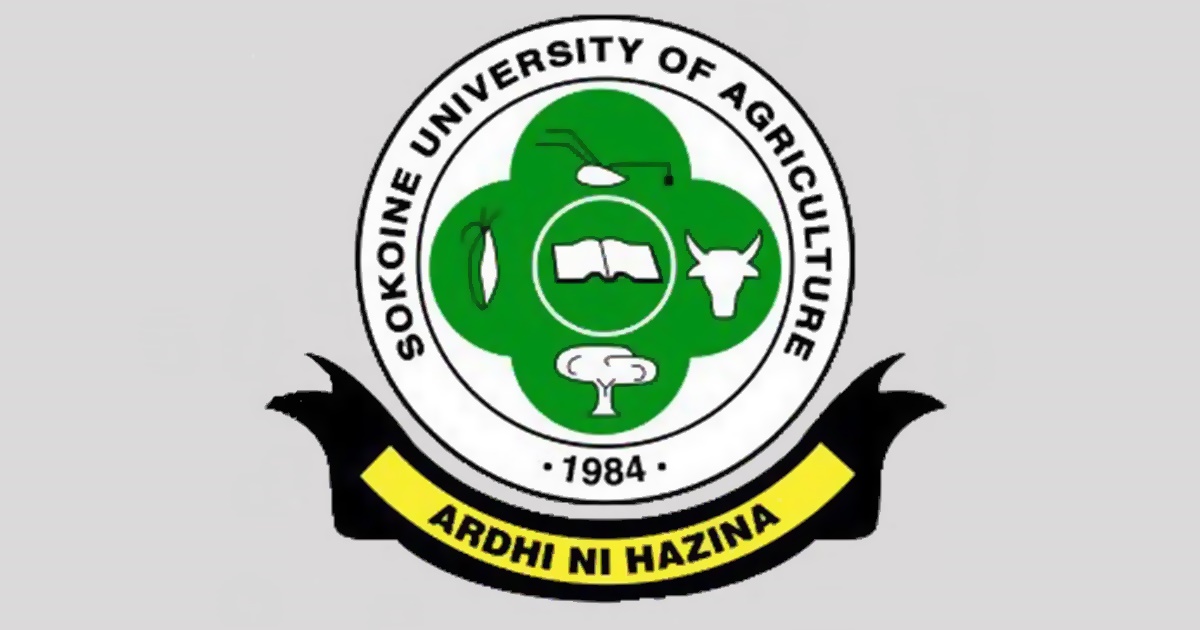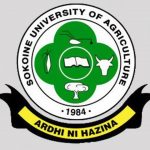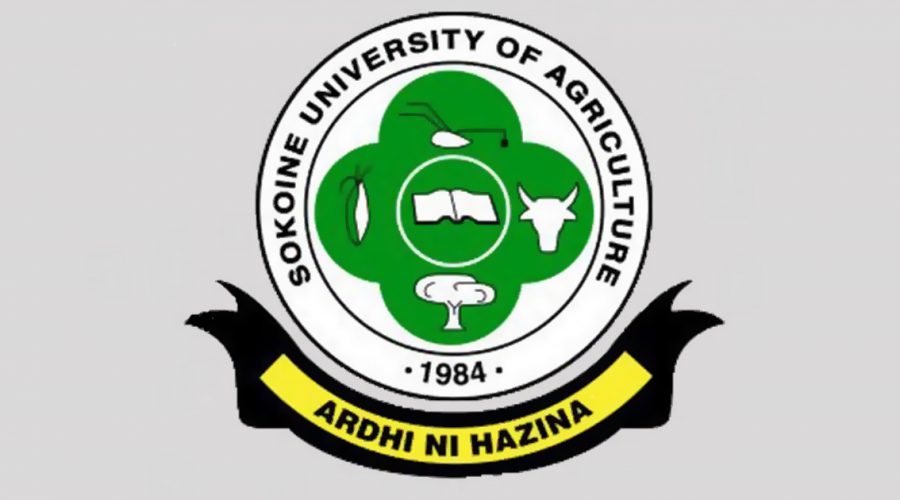Defence: PhD
Abiud January is Lecturer at University of Dodoma (UDOM) college of Business and Economics (COBE). Abiud joined the Sokoine University of Agriculture on September 2017 for Ph.D studies at the Department of Policy Planning and Management.
Title of the Thesis: Climate Smart Agriculture and Food security: A case of Mbeya and Songwe Regions of Tanzania
Supervisors: Prof. Joseph Hella and Prof. Kenneth Kitundu
Date and Time: 29th March 2021; 09.30 hrs
Venue: CSSH Board room
Mode of Defense: Face-to-face
Join Zoom Meeting: https://us02web.zoom.us/j/
Panelist Team
- J.Msuya (Chairperson)
- T. Allan (Internal Examiner)
- J.P. Hela (Supervisor)
- A. Kayunze (Appointee of the Principal)
- S. S. Nyanda (Appointee of the Head and Secretary)
Summary of the Thesis
Climate change and food security remain a serious worldwide challenge. In Tanzania, climate change has a serious effect on agricultural productivity which leads to household food insecurity. Climate Smart Agriculture (CSA) is one of the best approaches proposed by Food and Agricultural Organization (FAO) to improve agricultural productivity, increase adaptation to climate change and mitigate greenhouse gases so as to improve food security status. Although Climate Smart Agriculture Practises (CSA-practises) have been promoted and implemented in the country, but usage of CSA-practises is still low while their impact on food security is not well documented, especially when used in combinations. This study examined the usage of different CSA-practises and their impact on food security among farming households in Mbeya and Songwe Regions in Tanzania.
Multistage sampling technique was employed in sampling 1443 farming households. A household survey was conducted where the primary data was collected using structured questionnaire. The Household Dietary Diversity Score per Adult Equivalent Unit (HDDS/AEU) and Food Variety Score per Adult Equivalent Unit (FVS/AEU) were used as indicators to measure household food security. To examine the determinants of using multiple CSA-practises a multivariate probit model was used while the ordered probit model was used to examine the intensity of using CSA-practises. A multinomial probit model was employed to estimate the factors influencing the usage combinations of CSA-practises (i.e. crop-rotation, crop residue retention and intercropping).
To examine the impact of using a combination of CSA-practises (crop rotation, residue retention and intercropping), a multinomial endogenous switching regression model was employed. Furthermore, the study examined the determinants of using a combination of organic manure, drought-tolerant maize seeds and irrigation as CSA-practises and how it impact on food security using a multinomial endogenous treatment effect regression. Furthermore, endogenous switching regression model was employed to evaluate the effect of using irrigation on food security in the household. The evaluation methods used in this study are appropriate in the analysis of this study as they control for both observed and unobserved heterogeneity. Other evaluation approaches such as propensity score matching and inversely probability-weighted regression (IPWR) can control only observed heterogeneity which leads to unbiased estimates.
The results from multivariate probit showed that the use of CSA-practises was positively influenced by gender of the head of the household, farm size, education of the head of household, location, size of the household, occupation, and farmer organizations membership. The study found that the farming households use multiple CSA-practises such as crop rotation, residue retention, intercropping, organic manure, drought-tolerant maize seeds and irrigation. The study moreover discovered that, the use of combinations of drought-tolerant maize seeds and crop rotation was positive and significant at 10 percent while the use of a residue-retention and crop-rotation in combination, combination of organic manure and crop-rotation, combination of intercropping and residue-retention and the combination of intercropping and organic manure are significantly and positively associated at significant level 1 percent. This implies that farming households consider these combinations as complements.
The study applied a multinomial probit model to examine the determinant of farm households’ decision to use combination CSA-practises (crop rotation, crop residue retention and intercropping). Through this model, it was revealed that production diversification, gender and livestock ownership were positively and significantly influence the usage of combination of residue-retention and intercropping (C0R1I1). In addition, education level and gender of the head of the household were positively and significantly affect in the usage of combination of crop rotation, crop residue and intercropping (C1R1I1). This comprehensive study is significant for finer understanding the synergistic effect of interrelated CSA-practises. The study calls for policy makers on policies and plans that promote CSA-practises as a combination, including other interrelated practises which upscaling CSA-practises usage.
The multinomial endogenous switching regression model findings showed that the usage of CSA-practises depend on either it is used in isolation or in combinations, and the usage of these CSA-practises significantly increase food variety score per adult equivalent unit when used either singly or jointly. Furthermore, the use of intercropping in isolation show the highest food variety scores per adult equivalent unit among all the possible combinations of CSA-practises. Moreover, the use of crop rotation in isolation also showed a high pay off after intercropping followed by a joint combination of crop rotation and residue retention. Thus, the usage of a combination of crop rotation, intercropping and crop residue retention was found to be the best food security portfolio. Therefore, based on these results there is a need to promote the usage of CSA-practise in isolation or in combination the results point towards the need for promotion of CSA-practises, both in isolation and jointly. In addition, it is advised to encourage farming households to us CSA-practises because the combinations considered in this study result into positive impact on food variety score per adult equivalent unit as an indicator of food security.
The findings from multinomial endogenous treatment effect regression show that the characteristics of the household, plot characteristics and institutional characteristics influences the usage of a different combination of CSA-practises. The study also found that the highest payoff of food security could be achieved when CSA-practises are used in combination than in isolation. The combination of drought-tolerant maize seeds and irrigation (Or0Dt1Ir1) gave higher payoff than the combination of all three CSA-practises. The study suggests that based on the practises considered in this study, usage of a combination of various practises results in better food security compared to the usage of these practises individually. This suggests that agricultural practitioners should promote combinations of CSA-practises to improve food security in the farming households.
Finally, the findings from endogenous switching regression model showed that radio ownership, education of the household head, farm experience, production diversity and livestock ownership were the determinants of using irrigation in the study area. The average treatment effect of the treated (ATT) and the average treatment effect of untreated (ATU) were positive and highly significant for irrigators and non-irrigators. That is, the use of irrigation as a CSA-practise has improved food security of the farming households. The study recommended that policymakers should consider rehabilitating the existing irrigation schemes while constructing of new irrigation schemes to widen the impacts of irrigation to household food security. However, despite the positive impact of irrigation, the study recommended the use of other irrigation practises such as drip irrigation, sprinkler irrigation in the areas where construction of small-scale irrigation is not possible.
Attendance
For members of the public (including non-panel individuals) who are interested to attend/follow the Viva voce examination virtually, kindly send your request to the Head of Department – Department of Policy Planning and Management the secretary of the Viva voce Examination panel.






